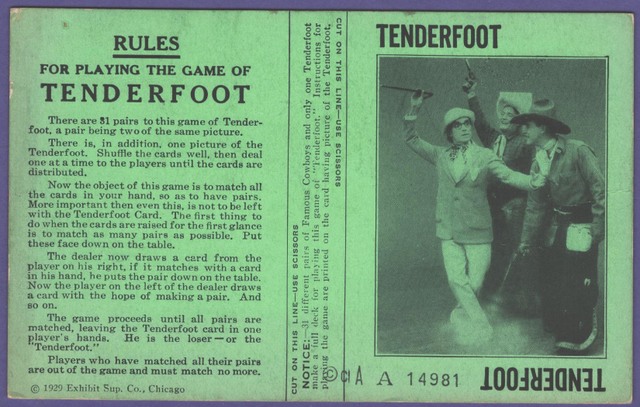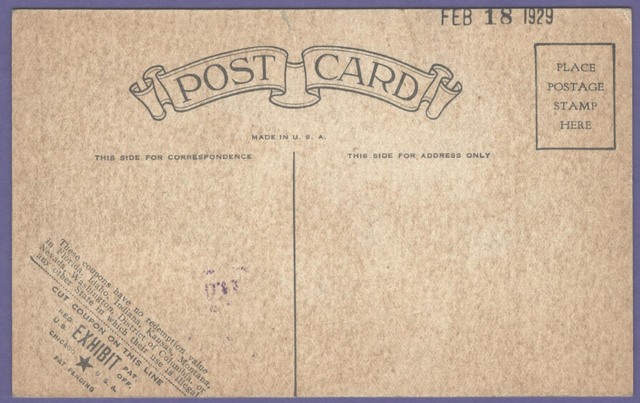I agree with Scott. A completely different issue, probably a PC and not arcade related other than the images.
I looked up the case. The statement of facts recites that ESCo made cards and machines and established its distribution format, and that Hurwitz tried to horn in on the business. What it does not say is that the 24 cards we call the Eastern cards were pirated ESCo products, just that Hurwitz had pirated cards:
"Late in 1923, and some months prior to the placing upon the machines of the notices above referred to, the defendant, Louis Hurwitz, purchased on credit from the plaintiff 50 of the machines and an appropriate supply of cards. He failed to complete the payments on the machines and subsequently disposed of them, and then began the manufacture and sale of cards substantially similar in subject-matter and in many cases identical with the pictures theretofore and then sold by the plaintiff and so designed as to permit of their being dispensed by the machines in the hands of the plaintiff's distributors; it being necessary in the use of the cards in the machines that they be of precisely the correct length, breadth, and thickness. The defendant, at first, adopted as his trade-name the title "Eastern Exhibit Supply Company," which, upon protest from the plaintiff, he afterwards changed to "United Post Card Supply Company." The [5 F.2d 371] defendant, through negotiations by correspondence and visits, has sold cards of his own manufacture to the distributors of the plaintiff's cards and has induced them and attempted to induce them to sell his cards, without regard to the notices upon the plaintiff's machine, at lower prices than those of the plaintiff. "
The case goes on to state that the injunction is based on ESCo's distribution scheme, not its cards:
"So far as the defendant's dealings with the plaintiff's distributors are concerned, it is apparent that the facts above stated do not constitute a case of unfair competition under the rule as to passing off, because he has not attempted to represent to the plaintiff's customers that his cards were those of the plaintiff, and hence, in so far as his dealings with the plaintiff's customers are concerned, he cannot be held to have passed off his cards as those of the plaintiff. The plaintiff's machines are not sold under a contract to use exclusively the plaintiff's cards and the cards are not protected by a copyright. The defendant, nevertheless, is, contrary to equity and good conscience, appropriating to himself the system and organization which the plaintiff, through many years of expenditure of effort and money has built up."
Subsequent history has an appeal dismissed in 1926.
So what I am thinking is that Hurwitz started out counterfeiting ESCo cards--which the court states were not copyrighted and therefore not protected--then made his own set of arcade cards [the Easterns], which he gave up after the injunction shut down his arcade activities. Pending appeal, he made a deal with Meyer to have ESCo take over the card stock and imprint with its own address. I am guessing that Hurwitz then made the thin B & W cards as 'straight' postcards under the US Postcard name, which he registered in PA in April 1925 as a fictitious business name. They could not compete with ESCo because they were not capable of being vended from the Esco machinery.
My experience has been that the cards with the line blocked out are much easier to find than the cards with the original EESCo address. That would be consistent with the idea that the originals were issued for a short time before the injunction and the rest were turned over to ESCO for reuse as part of the settlement, when they were imprinted and distributed. It would also account for how few of the Easterns there are as compared to the Chi company's products from the same period.
Also, with the judge noting that the company's cards were not copyrighted hence not protected, ESCo at some point began to register every card. Here is a copyright card from a 1929 issue:

